Does Coolant Stain Concrete? (Find Out Now!)

Coolant is a necessary additive for any vehicle. It protects an engine from overheating and lubricates various moving parts, helping to prevent damage to your head gasket, water pump, and other mechanical elements of your car.
When you park your car in the garage or in your driveway, leaks are likely the last thing you have on your mind. However, chemicals like coolant and antifreeze can easily leak from your car and create unsightly marks.
Coolant can easily stain concrete. It can leak from an engine or container and will leave behind an unsightly mark on your driveway or concrete pad. This is one of the worst stains that concrete can get since it can be difficult to remove. The good news is that it is water-soluble so certain solutions do work.
Do You Need Concrete, Brick, or Stone Pros?
Get free, zero-commitment quotes from pro contractors near you.

Does Coolant Stain the Floor?
Both coolant and antifreeze (two distinct chemicals that are often used interchangeably in conversation) can stain concrete floors.
Although the active ingredients in all coolant and antifreeze products are colorless, many contain a green, blue, or red dye.
These additives easily stain porous materials like concrete, leaving behind unsightly marks on the floor or driveway.
How Do You Clean Up a Coolant Spill?
Whether it’s due to a mechanical problem, a dropped bottle, or cracked car parts, it is very common for coolant to leak. It stains the floor and can be toxic, so it’s important to clean up spills as soon as you notice them.
However, it may be several hours or even days or weeks before you notice a spill, perhaps not until you are washing your car or cleaning the garage. Therefore, knowing the right tips for getting coolant stains off concrete is essential, too.
But first, you need to clean up the mess.
Place some sort of absorbent material on top of the spill. Good options include sand, baking soda, or kitty litter. They’ll help soak up the liquid before it has a chance to settle and be fully absorbed by the concrete.
After putting the material on the coolant, put some paper towels over it. This will prevent the material from being scattered. Let the entire mixture rest for a few hours.
Then, you can wipe it up. You may want to wear a pair of gloves while you do this.
If there’s no stain yet, you can finish cleaning up the coolant spill with a few squirts of liquid dish or laundry detergent. Let it set for a minute, then scrub and rinse clean with water.
Dry the wet spot by opening your garage door (if it’s an indoor spill) so fresh air can get inside. If it’s outside, just leave it be for several hours.
How Do You Get Coolant Off Concrete?
Cleaning up a coolant spill is one thing, but removing a stain is another challenge entirely, especially when it happens to be on concrete.
There are a few steps you can take, but know that you may need to be patient and try a variety of remedies before you have any success.
First, hydrate the area. Coolant is water-soluble, so any lingering traces of the chemical should dissolve when you apply water. You can use a hose or a spray bottle, but make sure you thoroughly saturate the area.
Keep the concrete wet until you are ready to clean the floor. Then, sprinkled detergent over the stain.
You can use powdered dish soap or laundry detergent. The powdered variety is your best option because it will enable you to see when it has covered the entire stain. It also tends to be more absorbent.
As you did before, place a bit of newspaper over the stain. Stack it up in several layers. Wet the newspaper, then leave it to dry for three hours.
Then, you can scrub the stain with a nylon brush. Spray it once more with water.
Look at the stain to see how well it was removed. If there is still any discoloration, you may need to repeat the process. In fact. you may need to do this several times in order to get rid of the stain.
If there’s an extremely large or stubborn coolant stain, you might want to consider a concrete refinishing or resurfacing job to get rid of it. A decorative overlay can help to mask the stained area and isn’t too expensive.
Related Questions
Does coolant stain asphalt?
Coolant can also stain driveways that are made out of asphalt. Fortunately, it tends to be easier to remove.Using a degreaser is the best way to get rid of coolant stains on asphalt but you can also use specialized products meant just for asphalt as well.
Does coolant dry up?
Coolant and antifreeze don’t dry quickly on their own. These products eventually do evaporate but can take several days, which is why you should cut them with water before attempting to clean them up.
Will coolant ruin a driveway?
Coolant can stain a concrete driveway or floor, but it won’t ruin it. Although it might be unpleasant to look at, the stain won’t do anything to degrade the quality or safety of your surface. It is important to clean up spills in a timely manner even if you don’t care about stains. That’s because it is toxic to animals and is often consumed by them, since it has a sweet taste.
Do You Need Concrete, Brick, or Stone Pros?
Get free, zero-commitment quotes from pro contractors near you.

Preventing Coolant Stains on Concrete
In the future, it’s a good idea to apply a concrete sealer to your floor. This can be done after resurfacing or refinishing as well as when you’re just installing a new concrete floor or slab.
A sealer will help prevent coolant, antifreeze, oil, grease, and other chemicals from staining the floor. It will also protect it from scratches and other damages.
Of course, you can always park your car somewhere else, but the whole point of having a garage or driveway is to give you a place to put your vehicle!
Instead, consider the steps above and you can enjoy the convenience of a concrete floor or driveway – without having to tolerate the unsightly stains from coolant.

More by Rebekah Pierce



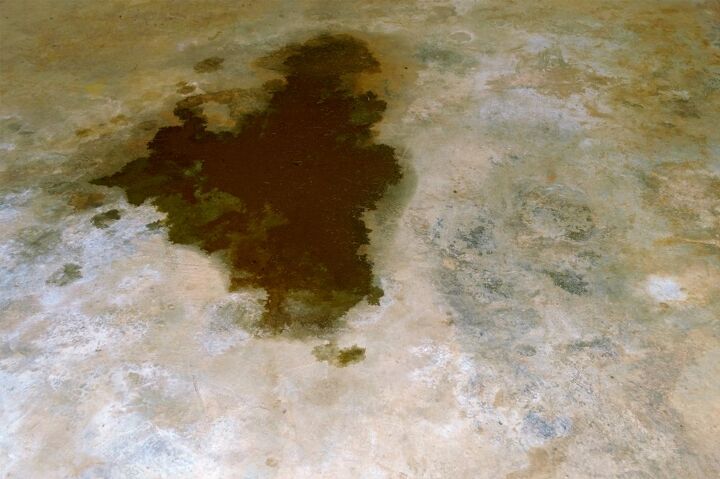
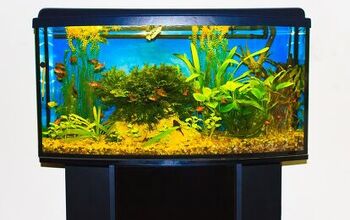





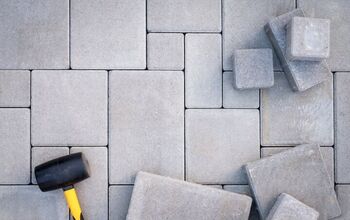

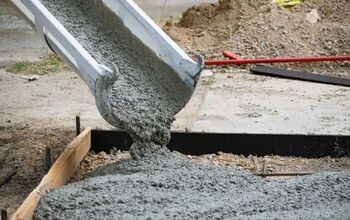
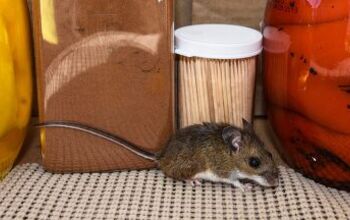





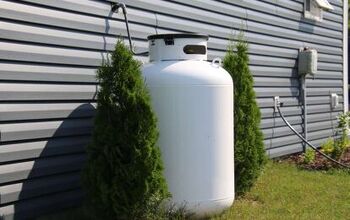
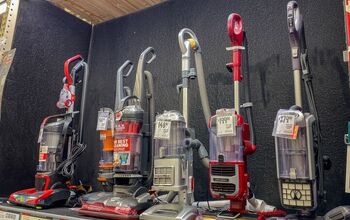
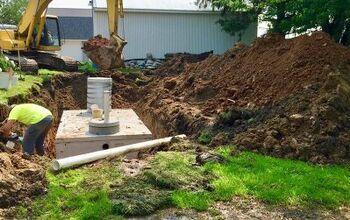




![12 Washing Machine Brands to Avoid [with Recall Data]](https://cdn-fastly.upgradedhome.com/media/2023/07/31/9075781/12-washing-machine-brands-to-avoid-with-recall-data.jpg?size=350x220)
